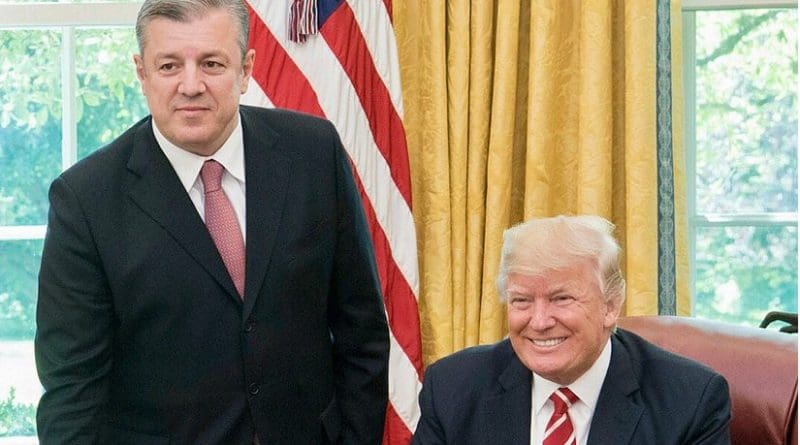Omnibus Act 2017 Reassures Eastern European Allies – OpEd
On May 5, 2017, the US Congress finally introduced a bill of Consolidated Appropriations Act also known as Omnibus Act, which appropriated budget and gave spending permissions to a number of federal agencies for the 2017 fiscal year. The 2017 fiscal year will end in September and the Congress will need to renew the budget planning for 2018 fiscal year.
President Trump, while satisfied with the Act stated that more work needs to be done to accomplish a better deal for GOP in September, he also called for a “good shutdown” of the government to accomplish Republican agenda. The bill, which after Trump’s signature became a law, includes a substantial budget increase in fields such as defense spending and homeland security. While partisan issues arise in the discussions about the Act, several foreign policy clauses have been adopted by the immense margin of bipartisan support.
The Congress, which historically holds the power of the purse and with that influences the decision-making of the executive branch, has made it clear that Russian aggression against its neighbors will not be tolerated. While the Act cuts its financial allocation towards United Nations missions, bilateral aid packages remain intact. The Act maintains the fiscal year 2016 levels for Foreign Military Financing program for Ukraine ($85 million) and Georgia ($30 million).
Moreover, the law provides $100 million for a new Countering Russian Influence Fund to mitigate Russian influence in the former Soviet region. Besides, monetary packages, the Act contains language that is celebrated among Georgians, who actively pursue non-recognition policies of separatist regions of Abkhazia and Tskhinvali region. Abkhazia and Tskhinvali regions are two entities that demand independence from Georgia but fail to garner any support outside Russia, which by violating international law supports these separatist movements.
The Act takes several measures to support Georgia’s non-recognition policy of aforementioned regions: “none of the funds appropriated by this Act may be made available for assistance for the central government of a country that the Secretary of State determines and reports to the Committees on Appropriations has recognized the independence of, or has established diplomatic relations with, the Russian-occupied Georgian territories of Abkhazia and Tskhinvali Region/South Ossetia.”
This clause will make countries, which are given incentives by Russia to recognize these regions, to think twice before they make decisions. As the Ambassador of Georgia to the United States, David Bakradze said in a private conversation: “The message of support was sent not only to Georgia and its citizens but also to other countries, that the US will do its utmost in non-recognition policy and violation of international law will not remain unanswered.”
The Act is a clear reassurance to the peoples of Eastern Europe that both the US Congress and the President will stay committed to support the Eastern European allies: “The fact that this language in the Consolidated Appropriations Act was supported by house, then senate and signed into law by President indicates bipartisan and strong support of US and its Government to Georgia’s territorial integrity and sovereignty,” said Ambassador Bakradze, who has actively advocated for his country’s policy goals.
In the beginning of Trump’s presidency, the relations between Russia and the United States were expected to soften. Consecutively, the question of Eastern European allies as a bargaining chip in negotiations on Syria with Russia came up multiple times. The claims that the U.S. would allow more leeway to Russia to act freely in former Soviet space in exchange for cooperation in Syria were continuously disproven by Secretary Tillerson and multiple other high officials.
However, it was still expected that Trump could provide more leeway to Russians in Eastern Europe. Since America’s intensified involvement in Syria and vain de-escalation talks with Russia made it clear that the U.S. will not ignore Russian attempts to undermine the sovereignty not only of Syria but Eastern European partners such as Georgia and Ukraine.
It is interesting to follow the fate of the economic sanctions on Russia, which are set to expire in September 2017. The sanctions were put forth by the EU and the US as a response to Russian violation of Minsk Agreement. Perhaps, the US will push for the continuation of sanctions in an effort to counter Russian influence in Eastern Europe. This will be another illustration of the US commitment to its Eastern European allies.
*Joseph Jorjoliani is a non-resident expert at the Georgian Institute of Politics. He previously served as the Young Ambassador of Georgia to the United States.

